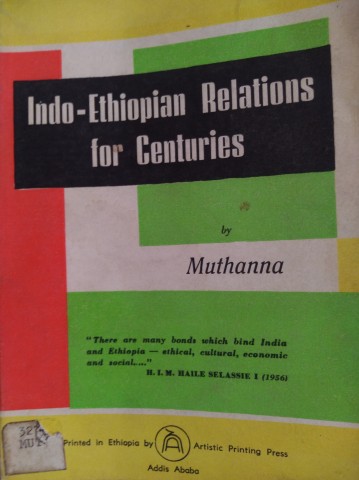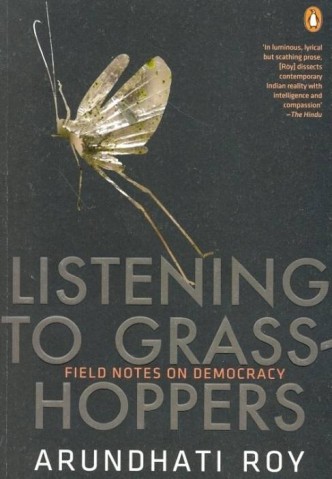This may not be the most rigorous of historical books, but given it was published in 1961, in Ethiopia, "Indo-Ethiopian Relations for Centuries" by Muthanna is a unique find. The first 70-odd pages present some rather tenuous linkages between the two areas, and ome rather bizarre claims that Ethiopians (and Egyptians) are descendants of Indians (p. 19). Even some of Ethiopia's most important texts (e.g. Kibra Negast) are claimed to have Indian roots (p. 36) as too are the Rock Churches of Lalibela: "in all probability the masons and subsidiary workers must have come from India" (p. 203). However, once the book moves to cover the relatively most recent period (14th century onward), it provides some interesting historical relations between the two nations. The deep historical were largely driven by imperial powers – Portuguese trade, British colonialism, slaves and soldiers moving across the oceans. More modern historical ties (1800s onward), took business and political forms – with India and Indians playing key roles in the right against the Italians and in the decision regarding Eritrea in 1952. As India is now one of Ethiopia's largest sources of foreign direct investment, this book may find new readers as the ties between the nations deepen.
Arundhati Roy's "Listening to the Grasshoppers: Field Notes on Democracy" (2009) is a collection of essays, written during the 2000s. The topics span a range of issues, largely occurring in India. While the "field notes on democracy" were present, they were often implicit - which is somehow expected as the content was not written as a book, but a series of disconnected essays. A few noteworthy, often very witty and wise, reflections:
- "The system of representative democracy - too much representation, too little democracy - need some structural adjustment." (p. x)
- "The space for nonviolent civil disobedience has atrophied. After struggling for several years, several nonviolent people's resistance movements have come up against the wall and feel, quite rightly, they have to now change direction. Views about what that direction should be are deeply polarized. There are some who believe that an armed struggle is the only avenue left... Others are increasingly beginning to feel they must participate in electoral politics - enter the system, negotiate from within." (p. 37)
- "A political party that represents the poor will be a poor party. A party with very meagre funds. Today it isn't possible to fight an election without funds. Putting a couple of well-known social activists into Parliament is interesting, but not really politically meaningful. Not a process worth channeling all our energies into. Individual charisma, personality politics, cannot effect radical change." (p. 39)
- "We need vision. We need to make sure that those of us who say we want to reclaim democracy are egalitarian and democratic in our own methods of functioning. If our struggle is to be an idealistic one, we cannot really make caveats for the internal injustices that we perpetuate on one another, on women, on children... If opportunism and expedience come at the cost of our beliefs, then there is nothing to separate us from mainstream politicians. If it is justice we want, it must be justice and equal rights for all - not only for special interest groups with special interest prejudices. That is non-negotiable. We have allowed nonviolence resistance to atrophy into feel-good political theatre, which at its most successful is a photo opportunity for the media, and at its least successful is simply ignored." (p. 41)
- "What we;re experiencing now is blowback, the cumulative result of decades of quick fixes and dirty deeds. The carpet's squelching under our feet. The only way to contain - it would be naive to say end - terrorism is to look at the monster in the mirror." (p. 197)
1183 Hits
Featured Posts
Tags
Development
Gender
Human Rights
Fellowship
Ethics
Colonization
Democracy
Islam
Poverty
Leadership
Inequality
Politics
Governance
Development Studies
Power
Institutions
Migration
Racism
Food Security
History
Sustainability
Ethiopia
Post-doc
decolonization
International development
Civil society
Middle East
Ethnography
Culture
Economics
Qatar
Interdisciplinary
Agriculture
Participation
Africa
Capitalism
Colonialism
Anthropology
Land
Education
Policy
Rural Development
South Africa
Climate change
Resilience
Conflict
Ideology
Globalization
Books
Revolution


